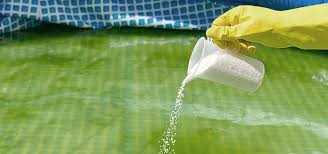How To Effectively Prevent The Growth Of Algae In Swimming Pools?
● What are Pool Algae?
When owning a pool, one of the most necessary things to know about are facts about pool algae. These plants are live and can be found dwelling in your pool.
Another indication aside from color change, is the cloudiness or haziness of your pool water. Most algae are freely floating in your pool water, some can be stuck on corners and crevices. Once they build up, there are huge possibilities that they might be mixed with your pool water, and as time goes on, haziness or cloudiness is observed. Even if the spread of algae in your pools can seem unavoidable or out of hand, it is a good thing that there are still a lot of solutions that can help to solve it! We are going to learn all of that as we go along with our discussion in this article.

● How to effectively prevent the growth of algae in swimming pools?
1. Check the water chemical content regularly. You must check the pH, chlorine level, and pool stabilizer regularly to keep them in order at all times.
2. Turn on the pump and make sure it is running continuously. One of the most common pool algae infestations is poor water circulation. By turning on the pump, your pool water will circulate properly through the filter and heater, producing clean and warm water.
3. Check the filter and always make sure it is clean. The filter is the heart of any pool. It is also responsible for filtering the pool water, thus preventing algae growth. Therefore, you must also make sure it is always clean.
4. Clean the floor and walls of your pool regularly. Some algae cannot be removed by just spraying chlorine, and some require thorough brushing, which will loosen the algae and then remove it through the filter. Algae can also be found in the cracks and crevices of your pool, so you must always check these areas.
5. Disinfect your pool water regularly. An effective way to remove pool algae is the process of adding a higher dose of chlorine than you normally use. Adding high doses of chlorine through pool shock also helps kill algae and bacteria. However, some algae, such as black algae, yellow algae, and green algae, require a specific dose or level of chlorine shock to completely overcome them and remove them from your pool water.
